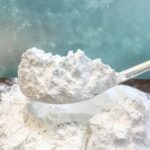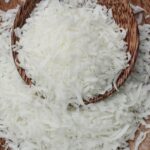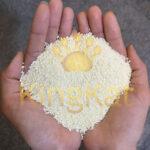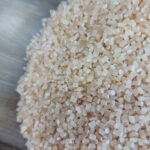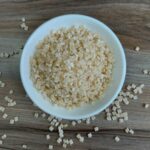CASHEW NUT SHELL OIL
Table of Contents
ToggleIn the complex and demanding world of oilfield drilling, the selection of appropriate additives for drilling fluids is crucial to ensuring the efficiency and effectiveness of operations. Among the various options available, Hydroxypropyl Starch E1440 has emerged as a key component, particularly valued for its role as a filtration control agent. This article will explore the use of Hydroxypropyl Starch E1440 in drilling operations, backed by reputable sources and industry practices.

The Role of Drilling Fluids in Oilfield Operations
Drilling fluids, often referred to as drilling muds, play a vital role in oil and gas exploration. They serve multiple functions, including cooling and lubricating the drill bit, removing cuttings from the wellbore, and maintaining good stability. One of the critical functions of drilling fluids is controlling fluid loss to the surrounding formations, which can otherwise lead to a host of operational issues, including wellbore instability and reduced drilling efficiency.
Hydroxypropyl Starch E1440: An Effective Filtration Control Agent
Hydroxypropyl Starch E1440 is a modified starch derivative that has been widely adopted in the oil and gas industry due to its excellent filtration control properties. As a filtration control agent, Hydroxypropyl Starch E1440 is used to reduce the permeability of the drilling fluid to the surrounding formations, minimizing the loss of fluid and maintaining the integrity of the wellbore.
1. Controlling Fluid Loss
One of the primary benefits of Hydroxypropyl Starch E1440 is its ability to control fluid loss. During drilling, fluids are pumped into the wellbore to maintain pressure and remove cuttings. However, if these fluids infiltrate the surrounding formations, they can cause swelling and instability, leading to potential well collapse. By incorporating Hydroxypropyl Starch E1440 into the drilling fluid, companies can significantly reduce the risk of fluid loss, thereby enhancing operational safety and efficiency.
2. Enhancing Mud Viscosity
Another significant advantage of Hydroxypropyl Starch E1440 is its impact on mud viscosity. The viscosity of drilling mud is crucial for the suspension and transport of drill cuttings out of the wellbore. Hydroxypropyl Starch E1440 increases the viscosity of the drilling fluid, ensuring that cuttings are effectively removed and reducing the risk of blockages. This contributes to smoother and more efficient drilling operations.
3. Compatibility with Various Drilling Conditions
Hydroxypropyl Starch E1440 is known for its versatility and compatibility with a wide range of drilling conditions. It performs effectively in both freshwater and saltwater environments, making it a suitable choice for various drilling projects. Moreover, its resistance to high temperatures and pressures ensures that it remains effective even in challenging deep well drilling scenarios.
Practical Applications and Proven Benefits
The use of Hydroxypropyl Starch E1440 in oilfield drilling is well-documented and supported by practical applications in the field. Studies and industry reports have highlighted its effectiveness in reducing fluid loss, improving mud viscosity, and enhancing overall drilling performance.
For instance, research published in the journal Applied Clay Science discusses the benefits of using modified starches, including Hydroxypropyl Starch E1440, in drilling fluids. The study emphasizes the material’s ability to form a low-permeability filter cake on the wellbore walls, which significantly reduces fluid loss and enhances wellbore stability .
Moreover, a report from the Society of Petroleum Engineers (SPE) details the use of Hydroxypropyl Starch E1440 in various drilling operations, highlighting its role in improving drilling efficiency and reducing non-productive time (NPT). The report also underscores the starch’s environmental friendliness, as it is biodegradable and poses minimal environmental risks compared to synthetic polymers.
Conclusion
In conclusion, Hydroxypropyl Starch E1440 is a proven and reliable filtration control agent that offers significant benefits in oilfield drilling operations. Its ability to control fluid loss, enhance mud viscosity, and perform under various drilling conditions makes it an essential component of modern drilling fluids. Supported by reputable sources and practical industry applications, Hydroxypropyl Starch E1440 is a valuable tool for optimizing drilling performance and ensuring the success of oil and gas exploration projects.
For companies engaged in oilfield drilling, the use of Hydroxypropyl Starch E1440 can lead to more efficient operations, reduced costs, and improved safety, making it a smart investment in the future of energy exploration.

